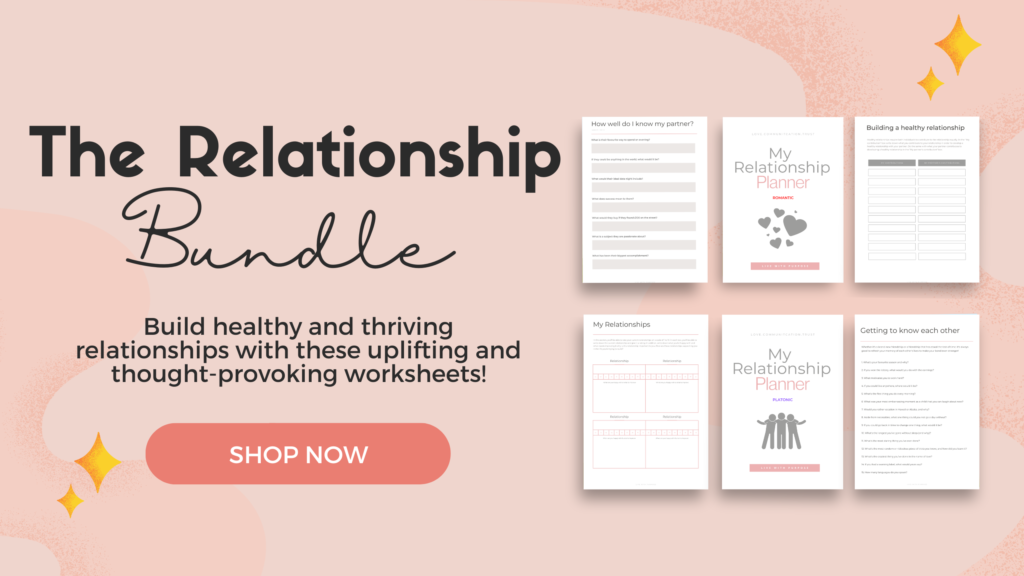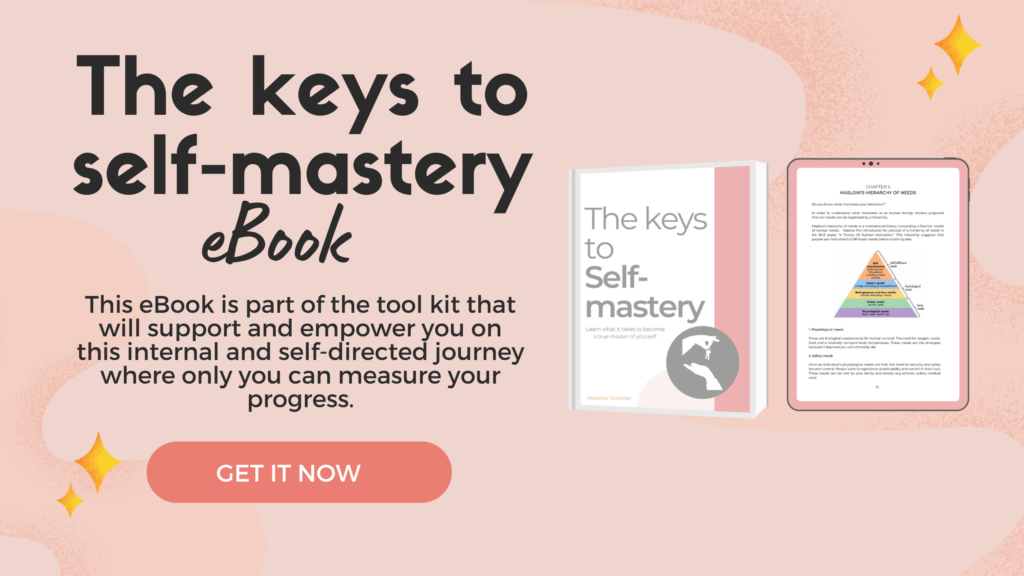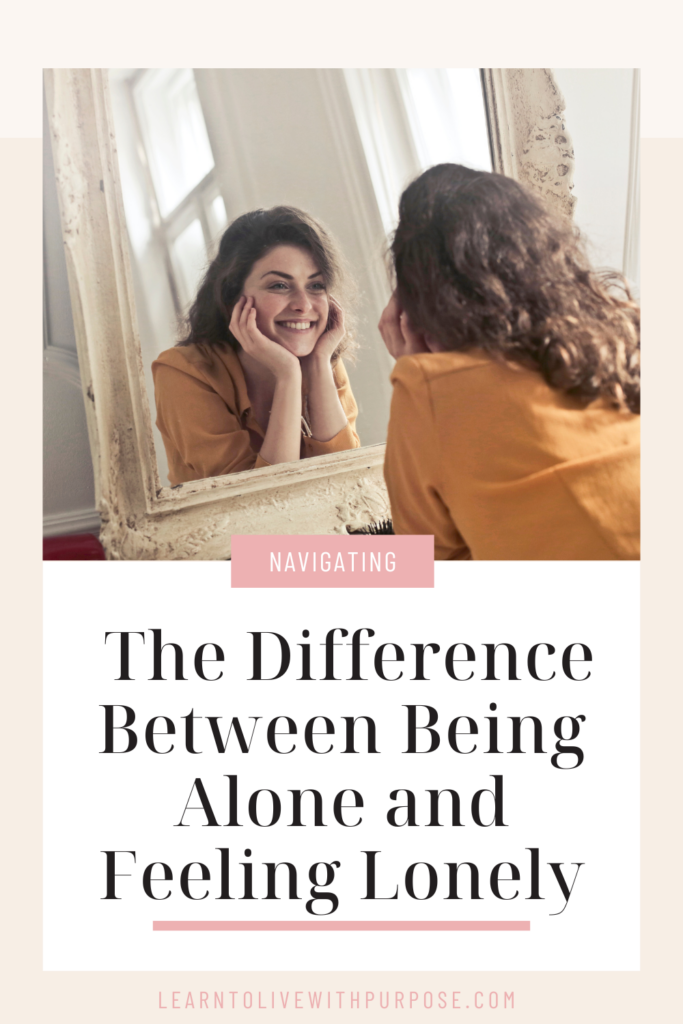
In a world that often emphasises the value of social connections, there’s an important distinction to be made between being alone and feeling lonely.
Many people associate solitude with a sense of isolation or sadness, but the truth is that being alone can be a fulfilling and rejuvenating experience. 😊
In this blog post, I will explore the nuances of being alone versus feeling lonely, understanding the importance of solitude, and embracing the positive aspects of both states.
Let’s get to it. 💕
The Difference Between Being Alone and Feeling Lonely:
Being Alone:
Being alone is a state of physical solitude, where you find yourself without the company of others. It can occur by choice or as a natural consequence of circumstances. Spending time alone provides an opportunity for self-reflection, relaxation, and personal growth.
It allows you to engage in activities that bring you joy, pursue hobbies, or simply enjoy a moment of peace. Being alone can be a deliberate choice, a time to recharge and connect with oneself. 🥰
Feeling Lonely:
Loneliness, on the other hand, is an emotional state that arises from a perceived lack of meaningful connections. It’s possible to feel lonely even in a crowded room if the connections are superficial or unfulfilling.
Loneliness is often characterised by a sense of emptiness, isolation, or a longing for deeper human connections. It’s a complex emotional experience that can impact mental and physical well-being. 😟

Embracing the Positive Aspects of Being Alone:
1. Self-Discovery:
Being alone provides an opportunity for self-discovery. It allows you to explore your thoughts, feelings, and interests without external influences. Use this time to reflect on your goals, values, and aspirations. Self-discovery is a crucial aspect of personal growth and can lead to a deeper understanding of oneself.
2. Independence:
Embracing solitude fosters independence. When you’re comfortable being alone, you become more self-reliant and less reliant on others for your happiness. This independence can empower you to make decisions based on your own needs and preferences, leading to a more authentic and fulfilling life. 🥰
3. Creativity:
Solitude often sparks creativity. When you’re alone with your thoughts, you have the mental space to generate new ideas, think critically, and engage in creative pursuits (yaay). Many artists, writers, and innovators find inspiration in moments of solitude, leading to the creation of meaningful and impactful work. 🎨
4. Rest and Rejuvenation:
Being alone allows for rest and rejuvenation. In a world filled with constant stimuli, taking time for solitude can be a form of self-care. It provides an opportunity to relax, recharge, and focus on activities that bring you peace and joy, contributing to overall well-being.

Addressing the Challenges of Feeling Lonely:
1. Cultivating Meaningful Connections:
If loneliness arises from a lack of meaningful connections, focus on cultivating relationships that nourish your soul. Seek out individuals who share your values and interests. Join clubs, organisations, or communities where you can meet like-minded people. Focus on getting yourself out there. Quality connections are often more fulfilling than a large social circle. 🫂
2. Volunteering and Giving Back:
Engaging in volunteer work or contributing to your community can alleviate feelings of loneliness. By helping others, you not only make a positive impact on the world but also connect with individuals who share a common purpose. Volunteering provides a sense of belonging and fulfillment.
3. Seeking Professional Support:
If loneliness becomes a persistent and overwhelming emotion, maybe consider seeking professional support. A therapist or counselor can provide guidance and a safe space to explore the root causes of loneliness. Addressing these issues with professional help can lead to a more fulfilling and connected life. 🫶
Finding Balance:
The key to a fulfilling life lies in finding a balance between being alone and fostering meaningful connections. Embrace solitude as a time for self-discovery, creativity, and rejuvenation. At the same time, actively cultivate relationships that bring joy and fulfillment. Recognise that both states are essential for a well-rounded and satisfying life. 💕
Conclusion
Being alone and feeling lonely are two distinct experiences, each with its own set of opportunities and challenges. Embracing solitude allows for self-discovery, independence, creativity, and rest. However, if loneliness creeps in, it’s crucial to address it by cultivating meaningful connections, volunteering, or seeking professional support. You are not alone. ❤️
Understanding the nuances between being alone and feeling lonely empowers you to navigate both states with intention and purpose. Ultimately, finding a balance between solitude and social connections contributes to a rich and fulfilling life. Embrace the positive aspects of being alone, foster meaningful connections, and savor the journey of self-discovery in this beautiful dance between solitude and companionship.
Pin this post for a reminder 📌 👇

Related Blogs
Things to Say “No” to for you to Live a Happier Life
How to Stop Settling For Less Than You Deserve
How to Become the Best Version of Yourself: A Guide For 20-Somethings
Want to be successful in life? Learn how to have Self-discipline.
Will Smith once said: “Self-discipline is self-love” which I couldn’t agree with more. It equates to you telling yourself “ I love myself enough not to do XYZ” or “ I love myself enough to do XYZ”
Having self-discipline means having the ability to make a conscious decision regardless of your emotional state and follow through with it. Imagine all the things you could achieve with that capability. Think about all the times you have told yourself you were going to do something and you either ended up not doing it at all or did it for a few days and thought “ to hell with it” and went back to your old routine.
How different do you think your life would be if you had stuck at the habits and goals you promised yourself you would?

There’s no need to worry about it now, the time has gone. Let’s start looking forward to the future.
The fact that you’re reading this tells me you’re not dead which means you still have a chance to do everything that you’ve promised yourself that you were going to achieve. Self-discipline isn’t something you’re born with (how awesome would that be) It’s rather something that gets developed over time by creating daily rituals that subsequently helps you to achieve your goals. Having Self-discipline requires you to proactively train yourself to follow a specific set of rituals and standards that help you shape your thoughts and behaviours to what you need to become your version of success.
What are rituals you ask?
Rituals are conscious, deliberate and consistent actions that help you build habits over a period of time. We all have daily rituals that we don’t even think about such as brushing your teeth every morning or watching your favourite show at the same time every week (The Real Housewives Of Atlanta is a guilty pleasure of mine).
So what do rituals have to do with Self-discipline?
Developing a set of rituals can help you re-focus your mind on what’s most important, allowing you to work with a deeper sense of purpose, dedication and urgency within your life which will eventually boost your levels of productivity. There are many rituals you can start to improve your self-discipline, here’s a list of daily rituals that will drastically improve your chances of wealth and success.
1. Practice gratitude
We all get lost in the day-to-day hustle and bustle of life which makes it easy to lose sight of what we should be grateful for on a daily basis. Taking time out of your day to express gratitude for what you already have and for what you have already accomplished gives you the opportunity to reflect on what matters most in your life.
As a personal favourite, I enjoy reciting things I’m grateful for within the first 30 minutes of waking up. It makes me feel better about my day and allows me to let go of any negative energy that I’m feeling.
There’s nothing too small in your life to be grateful for. The sun rays on your face when you wake up, your partner giving you a kiss on the cheek before you leave the house and your pet sleeping peacefully at the bottom of your bed are a few small things that may go unnoticed but make a great day nonetheless.
2. Meditate first thing in the morning
Meditation is a technique of resting the mind to reach a state of consciousness that is very different from your normal waking state. Daily meditation practices can help reduce anxiety, lower stress, increase happiness and help you develop an attitude of gratitude (which helps with my first point)
Meditating first thing in the morning helps set a productive and restful tone for the rest of the day. Before you say “I don’t have the time” Let me tell you this… you really do. Wake up 5-10 minutes earlier than usual so that you’re free of distractions then relax and get started.
Want to learn more about mindfulness and meditation? Check out my eBook The keys to self-mastery here > Damn straight I do
3. Exercise
I really hope you didn’t sigh when you read that, haha. Exercise has many positive effects on both the mind and body, it stimulates the release of endorphins that trigger a positive feeling in the body similar to morphine. Whether you prefer a morning or evening routine finding time in the day to workout gives you time to decompress and feel good about yourself.
Exercising is one of the best habits to adopt if you want to live a healthy lifestyle.
Think about what changes you can make to your lifestyle today to help you live a longer and healthier life.
4. Reading
If you don’t read regularly already, deciding what to read/not getting distracted easily while reading can be difficult. Don’t let that discourage you, starting with a page a day is better than not starting at all. If you’re totally not into reading, then you can listen to informative podcasts and audio books.
Q. So why should I make reading part of my daily routine?
A. The most successful people are always learning. Bill Gates and Warren Buffet were once asked about which superpower they could choose if they could have any superpower in the world and they both said “Speed reading”. Of all the superpowers in the world they could have chosen, both these billionaires chose reading as it was incremental part of their success.

5. Get out of your comfort zone
It’s hard I know, but making an effort each day by doing something that pushes you out of your comfort zone has many positive benefits and I’ll tell you why.
👉 You will boost your self-confidence.
👉 New challenges and different experiences rewire your brain and make it more adaptable and stronger.
👉 You’ll become more resilient and will be able to handle anything that comes your way.
👉 You’ll learn a lot more about yourself and what you’re capable of.
There’s no better way to grow and learn more of what you’re capable of than stepping out of your comfort zone. Creating change is hard as your brain is wired to expect the worst-case scenario due to the uncertainty of the outcome. However, if you’re always working within your norm you’ll never know what you’re truly capable of, and this is what I’m here to help you find out!
Check out my Getting out of your comfort zone mini-course here > HELP ME GET OUT OF MY COMFORT ZONE
These are just a few of the rituals that you can start putting into practice to put you on the first step in growing and developing yourself into a well-rounded and successful person. Whether you start off with 1 a day or 5, you’ve got this!
Charles Duhigg author of The Power Of Habit said “Once our brains are conditioned to incorporate habit, we use little to no brainpower on that particular aspect of our day; it’s as almost as if we’re sleeping during our waking hours”.
This is why it’s important to live intentionally. When you’re consciously unaware of what you’re doing day in and day out you’ll never be certain what kind of habits you’re adopting and how they’re having an impact on your life.
This is why daily activities such as journaling and mediation are important. It’s just you and your thoughts. It’s the best way to know and understand yourself better.
FAIL YOUR WAY TO SUCCESS
Self-Discipline is the act of trying, failing and trying again. Don’t think that people who are Self-disciplined don’t have off days, whether that off day is scoffing down 10 doughnuts instead of going to the gym or spending half their day scrolling through social media instead of working on their business plan, nobody is perfect and things you don’t want to happen, inevitably happen. It’s having the ability to learn what went wrong and bounce back from it quickly is what really matters.
According to a study by Stanford University, the amount of willpower a person has is determined by their beliefs. If you believe that you have a limited amount of willpower you most likely will not get past those limits. If you do not place a limit on your self-control you are likely to drain yourself with less meaningful tasks before meeting your goals.
Never fear failure as it is inevitable, pain is part of the process. Learn to fail forward to success and worry about becoming a better person today than you were yesterday.
How do you do that? By failing over and over again.
Heather’s top tip: Always remember that you don’t have to be great at something to start, but you have to start in order to be great
“If you don’t have 10 minutes to work on yourself every morning, then you don’t have a life”
Tony Robbins
Which rituals do you currently do to improve your Self-discipline? Let me know in the comments 🙂
Related blogs:
How to improve your life one day at a time
Did you know that people on my email list sometimes get exclusive discounts on my products? Join the community and save yourself some coins!
Freshly-squeezed inspiration, and no-nonsense tips + tricks to improve your life delivered to your inbox weekly.
Subscribe to my newsletter
Subscribe
You're all signed up!
Be sure to whitelist our email address so that all the goodies make it to your inbox.
